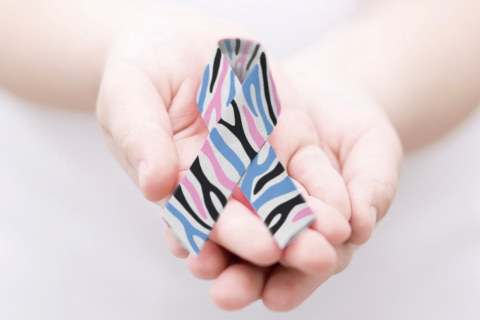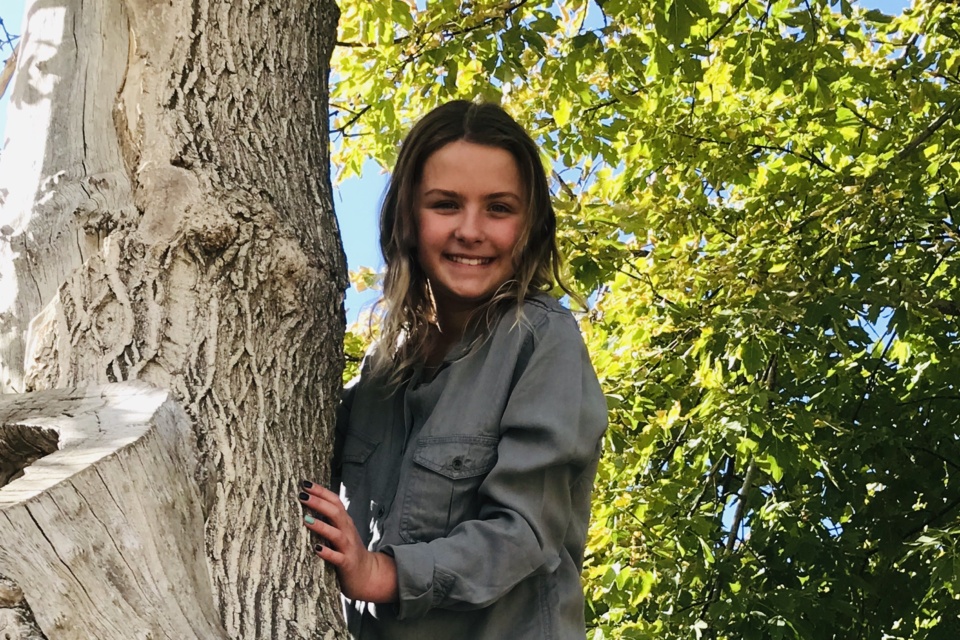In Honor of #UndiagnosedDay: “Push Through” by Ava Szajnuk
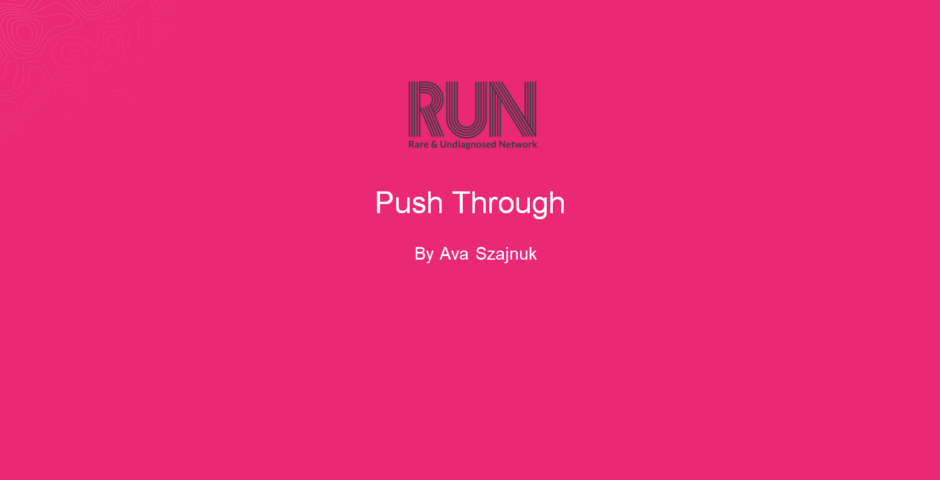
Hi. My name is Ava Szajnuk.
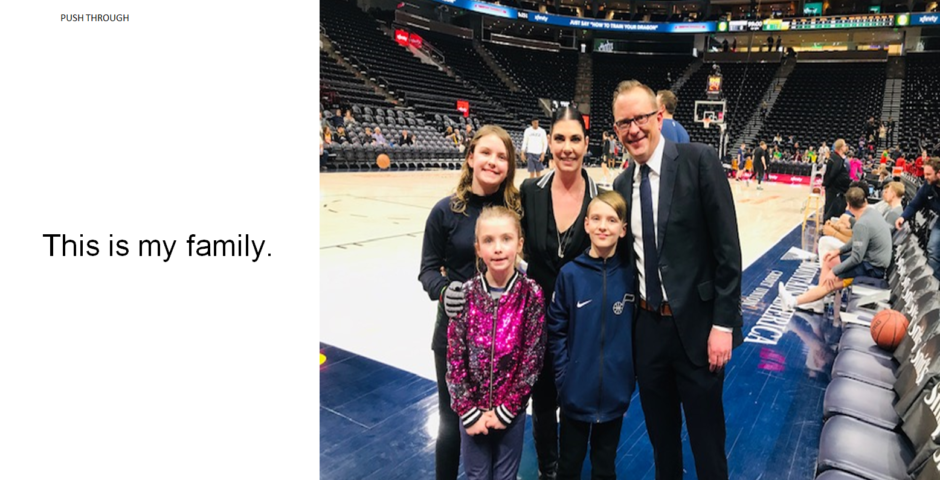
Thank you for joining us today to learn about what it is like to live with a rare or undiagnosed disease. I am undiagnosed. My mother and my two siblings are also undiagnosed. Together, we like to say that we live in a diagnostic odyssey times four. We have been seen or communicated now with geneticists at nine different institutions in seven different states. We have been through the NIH’s Undiagnosed Disease Network and still do not have a diagnosis, a treatment and a cure.
We are officially “undiagnosed.”
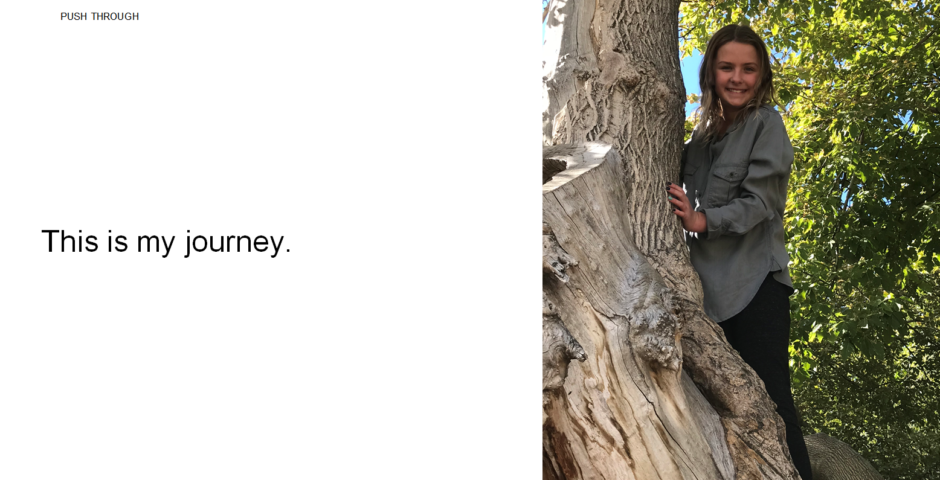
I am now 11 years old and I have already been through eight years of living in the world of the unknown, which really means the world of constant pain and fatigue. I have had four cranial brain surgeries and I am shunt-dependent. I almost lost my vision and my life during the summer of 2013 to a subdural hygroma. If it wasn’t for my mother and father refusing to leave during our ninth or so visit to the ER, I would not be here today.
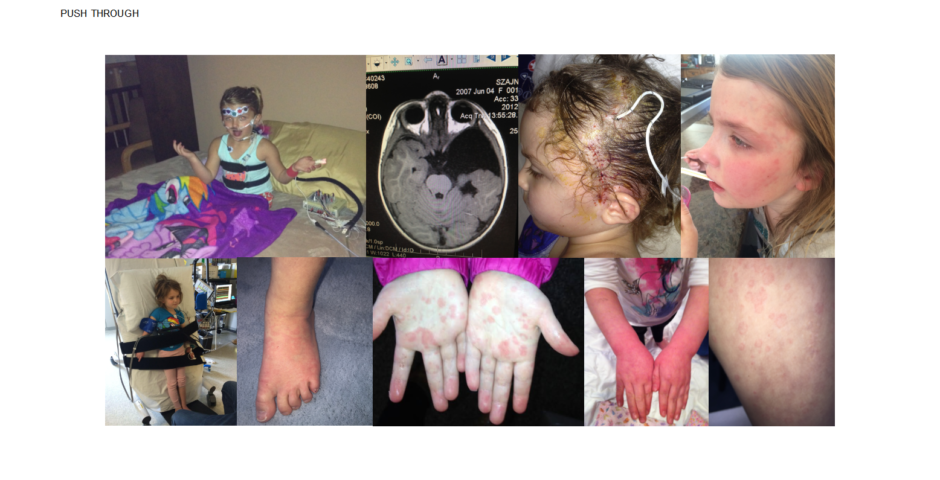
I wish that being shunt-dependent was the least of my worries. Unfortunately, it is not. I live with an undiagnosed autonomic neuropathy, which is what controls everything you do naturally. Breathing. Digestion. Motility. Heart rate and temperature. I suffer from fatigue and pain every single day but I push through.
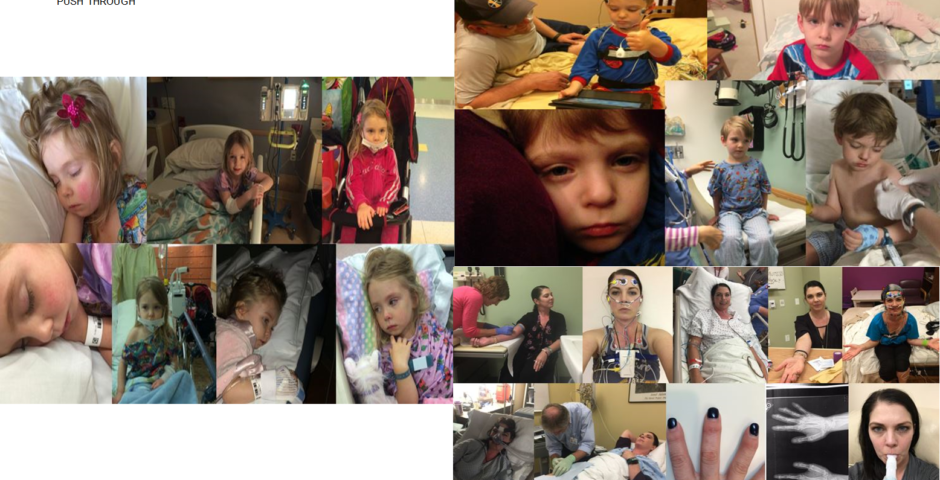
My younger brother, Oskar, and sister, Lucy, also suffer from fatigue and pain. My mother actually received a doctor’s note this week to stop everything and focus on her health as she is very sick. She perseveres just like us.
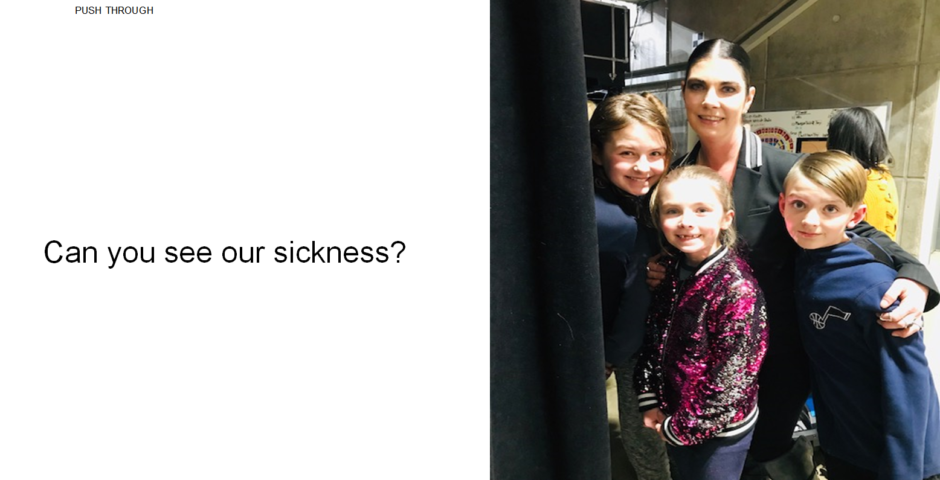
When you look at the four of us, can you see our sickness? No. You cannot see how sick we are. We want to advocate for chronic and invisible diseases as well. We understand that we are very blessed to be high functioning and I think my brother and sister are pretty cute kids. However, we are suffering. We are not making it up so we can stay home from school. We do not want to quit the basketball team or the swim team because we cannot make it to the practices. We want to do all the things that healthy children get to do.
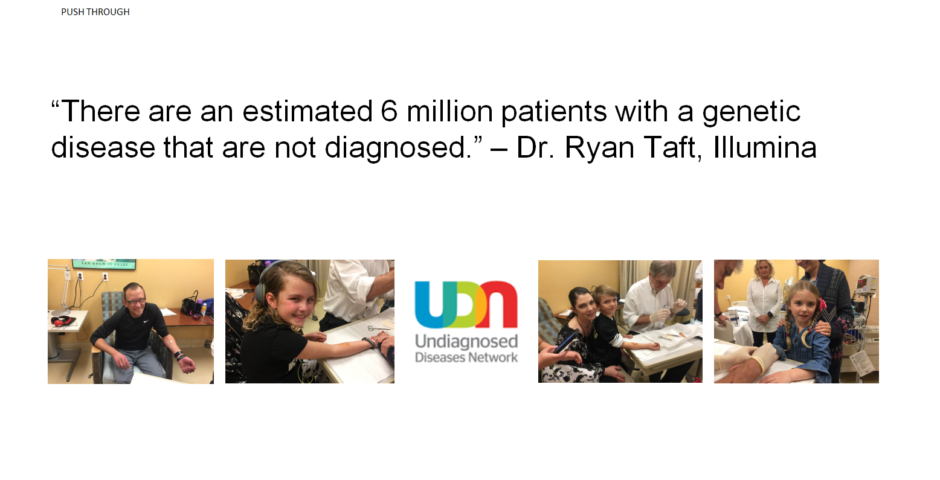
We have no future promise of finding out the root cause of our diseases. We have been told that we are 20+ years ahead of science. The question that bothers me the most is “will I suffer in pain for the next 20+years?”
I hope you consider being a geneticist or a genetic counselor. You are the future for our undiagnosed rare disease community. You are my future. You are my brother and sister’s future. We need your help. We need your expertise.
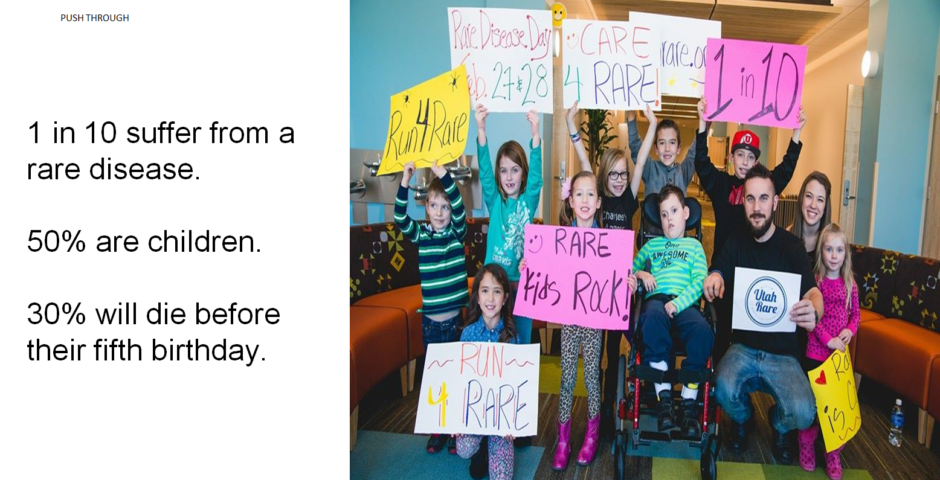
We like to also say that all rare diseases were once undiagnosed. Many children and adults are born and thought to be healthy. In one day, their lives changed in an instant. Rare disease will touch your life at some point. It could be your mom, your dad, your friend or your child.
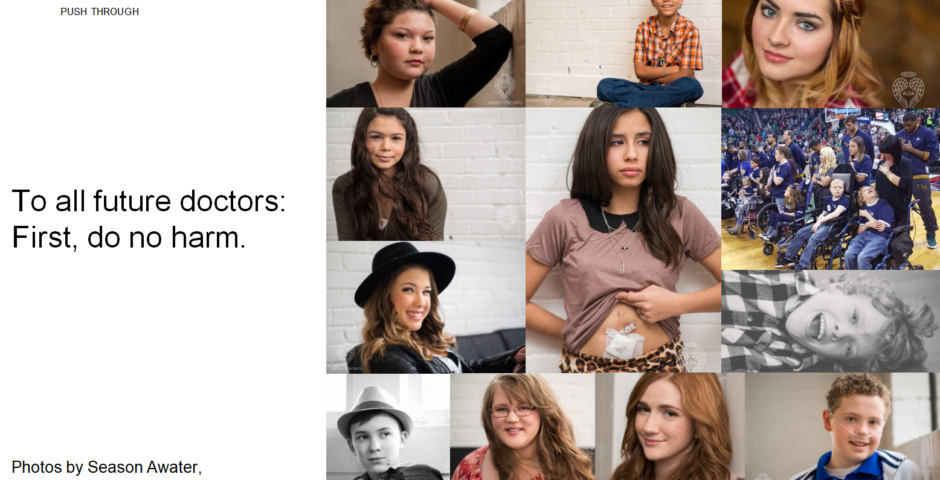
I know all of you in this room are aware of the Hippocratic oath. An oath, as future physicians, you will take. The cliff notes version, translated accurately or not, says: “First, do no harm.”
In the world of rare and undiagnosed diseases, sometimes, doctors do harm with their lack of empathy, curiosity, or drive to figure out the problem patients.
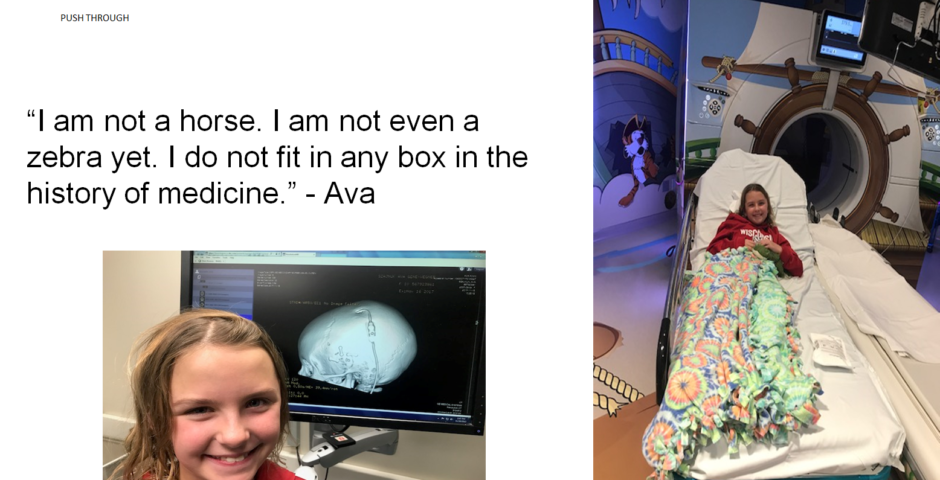
I have been in the ER several times when all of the blood work and my quick MRI come back normal. I’m still in pain. I’m still “mono” like. When the doctor mentioned psych…I was angry. If I say I do not feel well, I mean it. I should not have to prove myself over and over again. I know physicians are taught to look for horses, not zebras. However, I am not even a zebra yet. I do not fit an any box in the history of medicine. I am Ava Szajnuk. I am undiagnosed. I would love for the doctors to spend two hours in my body and tell me if they would be able to handle it for 20+ years.
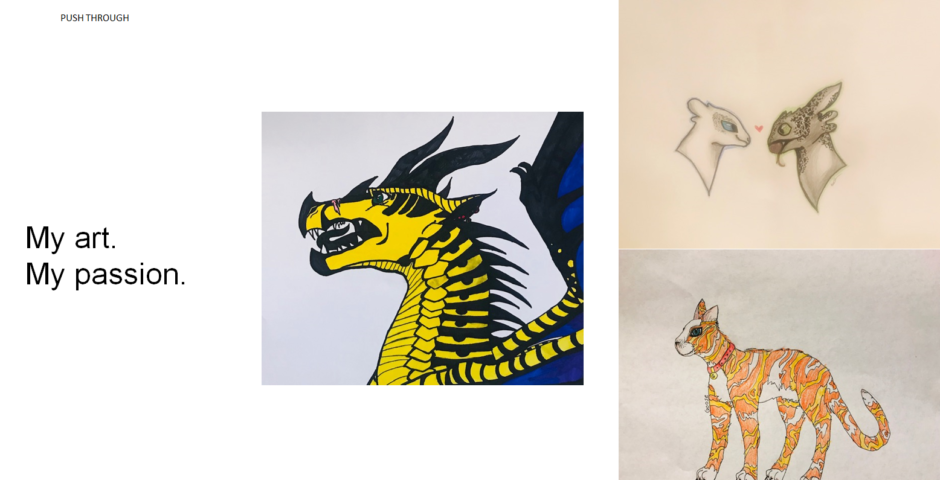
What I do want to express to everyone in the room is that I am not just sitting here complaining or sleeping the days away. I have found a place in my heart and in my brain to push through the pain and focus on my reading, my artistic talent and my love of watching movies. Every day I wake up and I know what to expect. I can either be mad at the world or just go with the flow. It is what it is and this is my one body that God and my parents gave me. I am persevering.
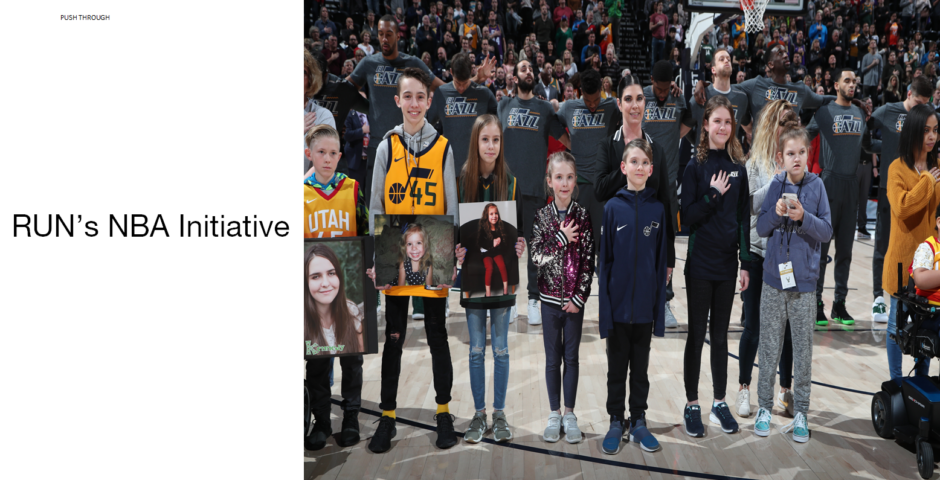
I am not going to give into my disease process. I have even started to advocate for the undiagnosed and rare community through RUN’s NBA Initiative.
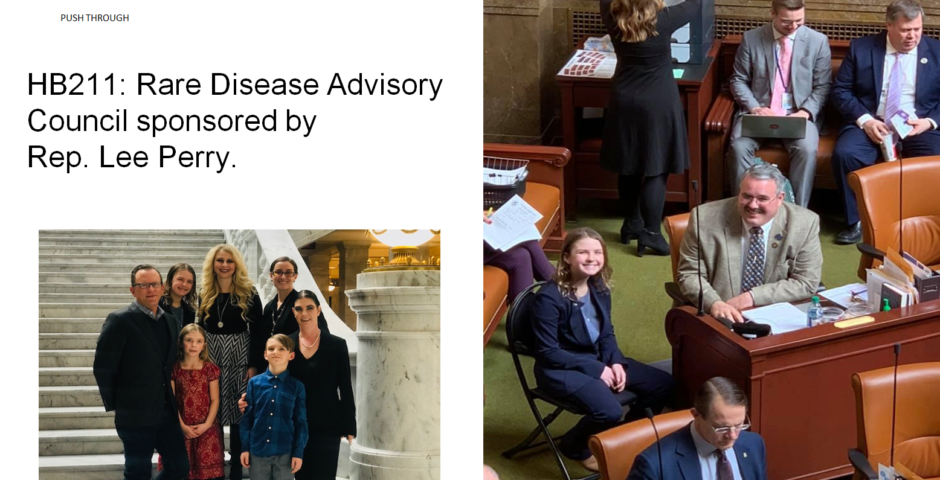
I was blessed with the opportunity to sit on the floor of the House of Representatives this past month for HB211, a Rare Disease Advisory Council, with Representative Lee Perry. I want to use my voice to help other children that do not have a voice and will never be able to say the word “mother” or to run around and play.
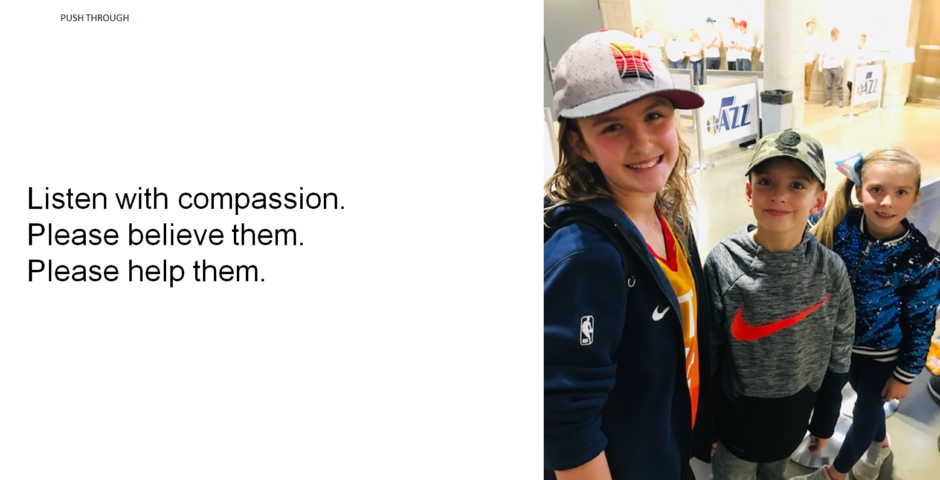
I truly hope the next time or your very first time you meet someone that doesn’t feel well and you cannot see it, you will listen with compassion and you will tell them that you believe them. I hope you will say that you will do everything in your power to help them.
How you treat patients, outside of the science, is crucial to giving hope to these families living in the world of the rare and undiagnosed.
Today, I would like to share the experiences of two of my undiagnosed older role models that have continued to battle an undiagnosed rare disease.
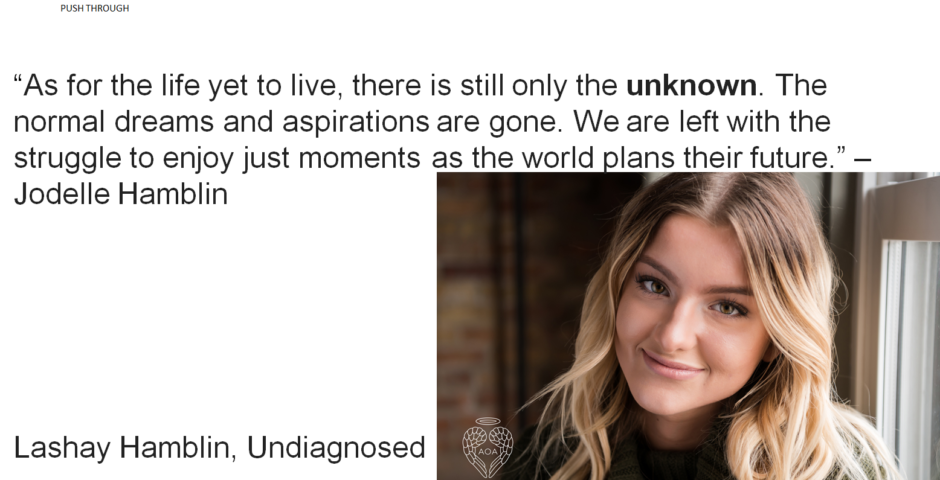
Lashay Hamblin has been battling an undiagnosed disease now for four years. You cannot see her disease process. Her mother wrote, “We have a diagnosis of POTS and Mast Cell but as for the why there is no answer. As for the life yet to live, there is still only the unknown. The normal dreams and aspirations are gone. We are left with the struggle to enjoy just moments as the world plans their future.”
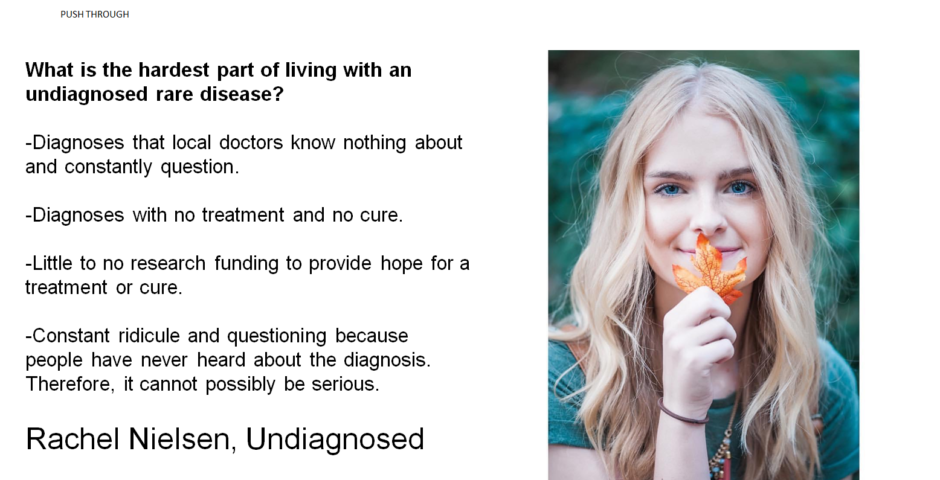
Rachel Nielsen has been battling an undiagnosed disease now for years. Her mother put a list together of what are the problems for patients living with an undiagnosed rare disease. The list is even longer than what we could fit on our slide.
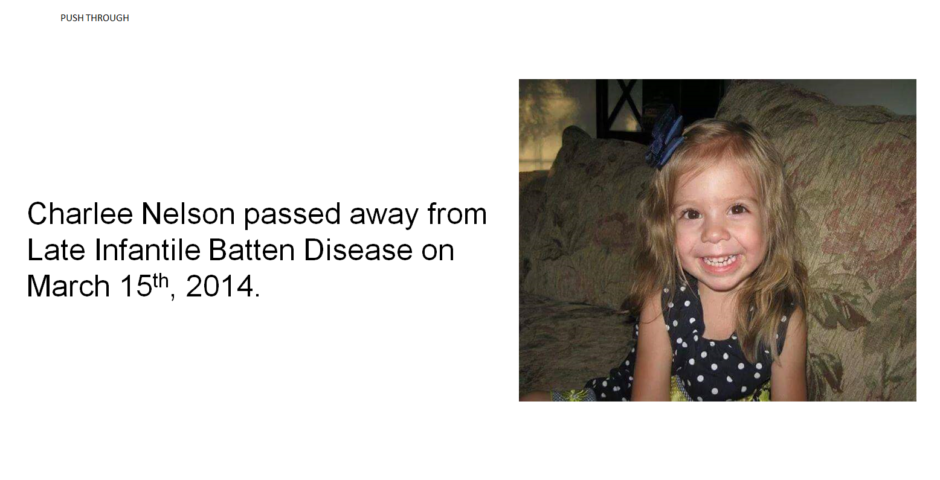
As I begin to end my speech, I would like to dedicate today to two very special people in our lives. The first is Charlee Nelson. She passed away from Late Infantile Batten Disease on March 15th, 2014. She passed away only two and a half months after turning six years old. I just about lost my life only one month past my sixth birthday. She would be eleven years old today. The same age as me.
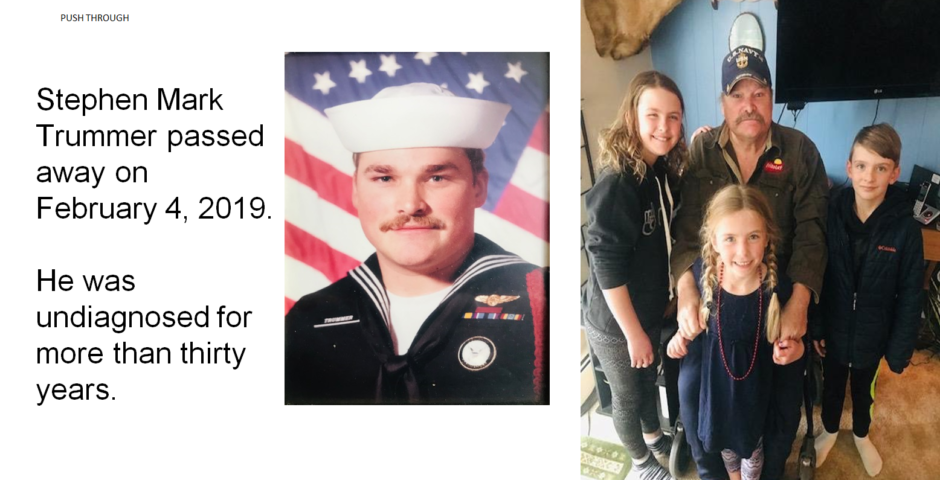
The second person that I would like to dedicate today to, is Steve Trummer. Our Steve was born on January 15th, 1957. He passed away on February 4th, 2019. He lived 30+ years as an undiagnosed rare disease patient. May he rest in peace.
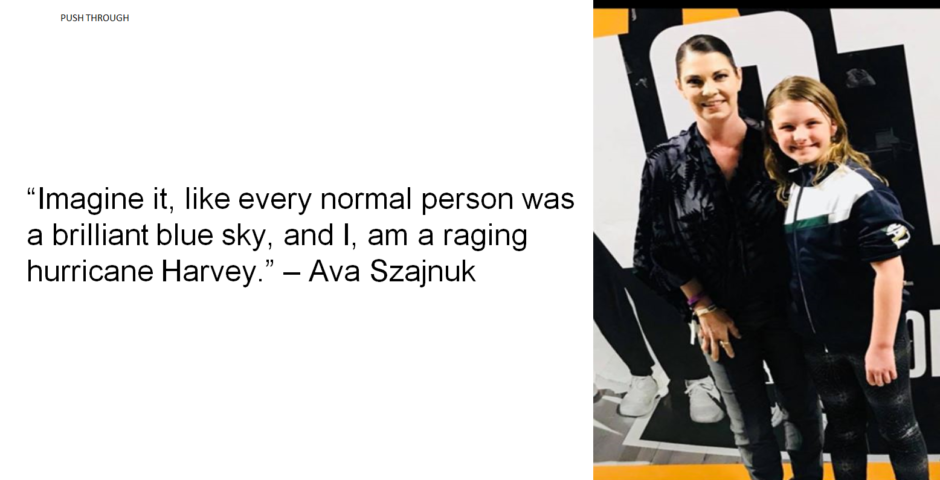
In closing, I would just like to say that some people ask, “Why do you hurt?” and I say, “If we knew that, I would already be cured.” Imagine it, like every normal person was a brilliant blue sky, and I, am a raging hurricane Harvey. Thank you. – Ava Szajnuk
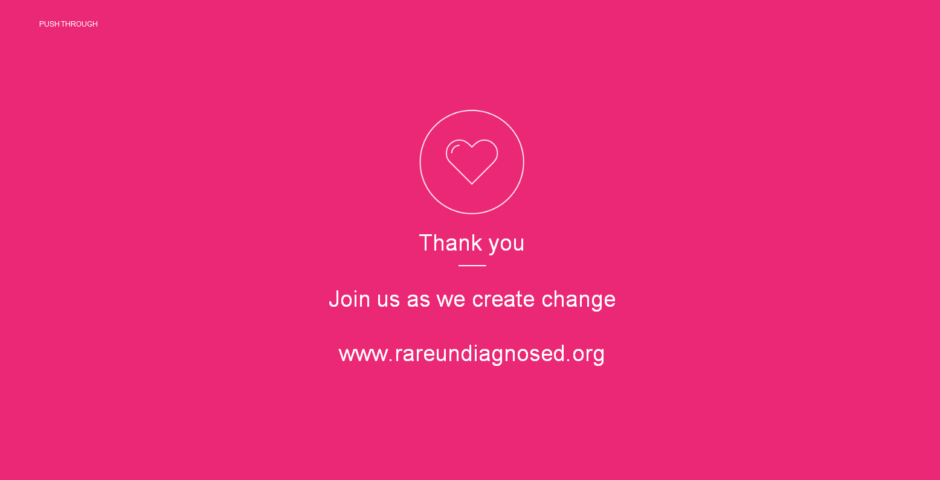
In 2018, RUN partnered with the University of Utah School of Medicine’s Pediatric Medicine Interest Group for an hour of experiencing what it is like to live with a rare or undiagnosed rare disease. Our speakers inspired the future doctors and genetic counselors to explore the world of genetics. We introduced them to what it is like to live in a diagnostic odyssey and the constant unknown. We hosted our second annual event for #RUN2U on March 27th, 2019!
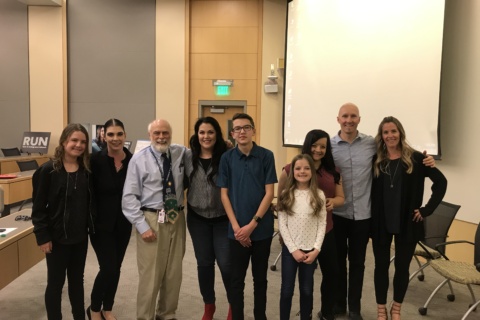 Thank you to everyone involved! You can watch the entire hour and all of our speakers at #RUN2U on March 27th, 2019!
Thank you to everyone involved! You can watch the entire hour and all of our speakers at #RUN2U on March 27th, 2019!
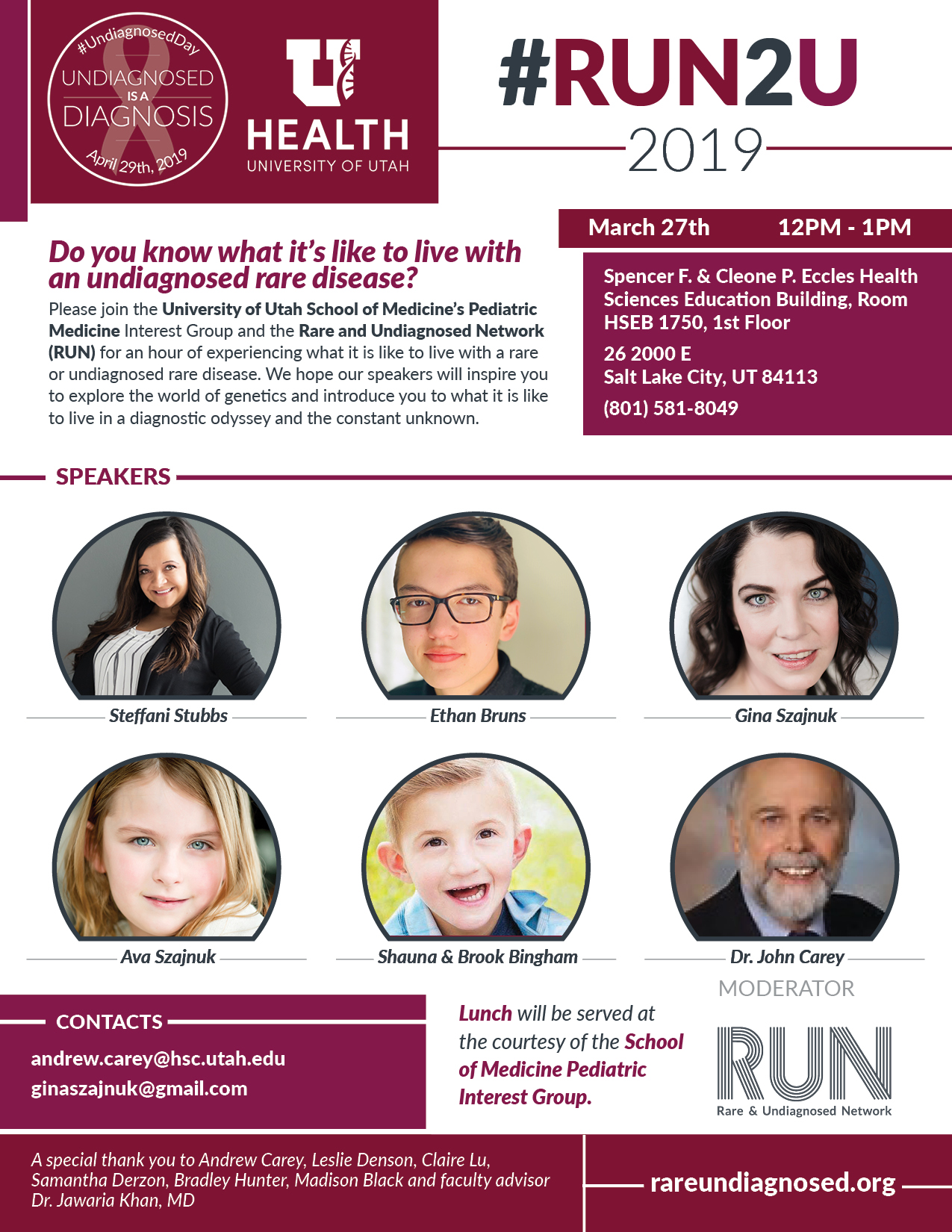
A special thank you to Dr. John Carey, Andrew Carey, Leslie Denson, Claire Lu, Samantha Derzon, Bradley Hunter, Madison Black and faculty advisor Dr. Jowaria Khan, MD
#RUN2U 2019: Unique Challenges of Living with a Rare or Undiagnosed Disease by Chloe Wilcox
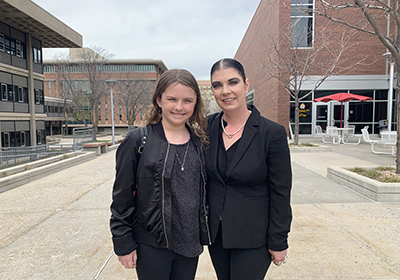
Photograph by Chloe Wilcox
Listen to Ava on RARE Cast by Global Genes: Young Rare Disease Advocate Discusses Life with an Undiagnosed Condition
Ava’s journey detailed in 2013 – 2015
“Undiagnosed is a Diagnosis” by Gina and Ava Szajnuk in 2018
2015: Ava Szajnuk shares her journey to her 2nd Grade Classmates
Governor Gary Herbert’s Declaration for Undiagnosed Rare Disease Day in Utah!
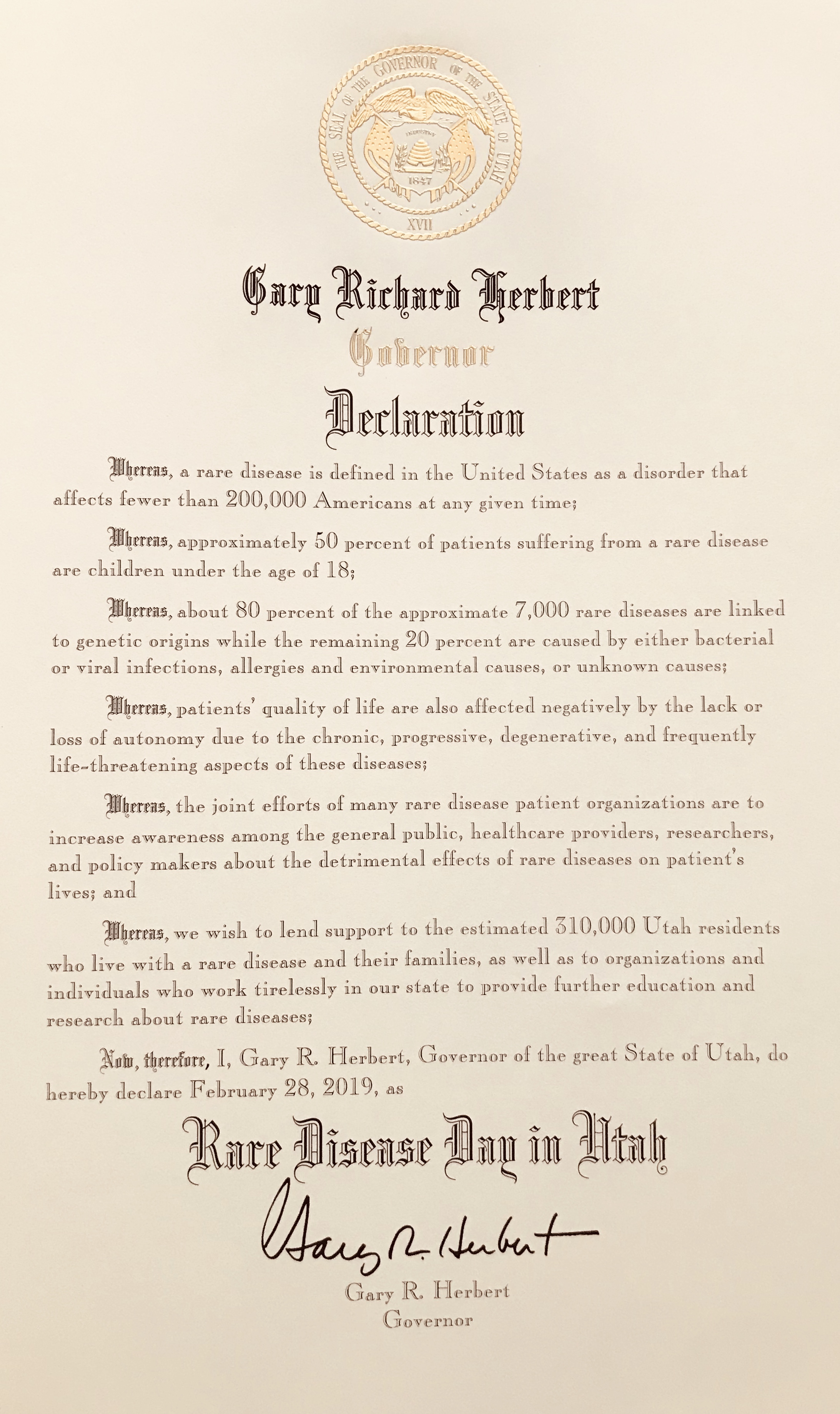
Learn More about #UndiagnosedDay, Undiagnosed Rare Disease Day
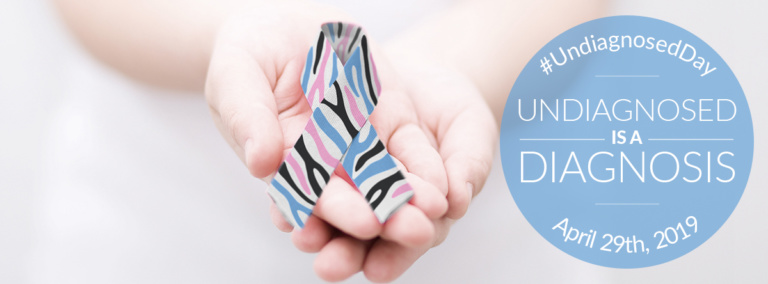
A special thank you to Erica Braymen, Ecosyse.com, for the marketing materials and social media banners. She took Ava’s drawing and turned it into something very special.
ABOUT RUN
RUN stands for the Rare & Undiagnosed Network. We’re a group of advocates, patients, families, researchers, and healthcare providers who share the same mission and vision: To empower rare and undiagnosed patients and their families with genomic information and community through advocacy, networking and support.
Contact information:
Gina Szajnuk (Zanik)
Co-founder and Executive Director
E: ginaszajnuk@gmail.com
C: (310) 883-4353
To Read: “What is the hardest part of being undiagnosed?” by Gina Szajnuk
To Read: “Undiagnosed is a Diagnosis” by Ava and Gina Szajnuk
To Read: The Szajnuk Journey
